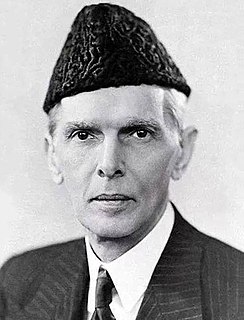A Quote by Charles Caleb Colton
We are more inclined to hate one another for points on which we differ, than to love one another for points on which we agree. The reason perhaps is this: when we find others that agree with us, we seldom trouble ourselves to confirm that agreement; but when we chance on those who differ from us, we are zealous both to convince and to convert them. Our pride is hurt by the failure, and disappointed pride engenders hatred.
Related Quotes
Let us watch against pride in every shape - pride of intellect, pride of wealth, pride of our own goodness. Nothing is so likely to keep a person out of heaven, and prevent them from seeing Christ, as pride. So long as we think we are something we shall never be saved. Let us pray for and cultivate humility; let us seek to know ourselves correctly, and to find out our place in the sight of a holy God.
There is no pain equal to that which two lovers can inflict on one another... It is when we begin to hurt those whom we love that the guilt with which we are born becomes intolerable, and since all those whom we love intensely and continuously grow part of us, and since we hate ourselves in them, so we torture ourselves and them together.
Just as meekness is in all our virtues, so is pride in all our sins. Whatever its momentary and alluring guise, pride is the enemy, "the first of the sins." One reason to be particularly on guard against pride is that "the devilish strategy of Pride is that it attacks us, not in our weakest points, but in our strongest. It is preeminently the sin of the noble mind." Not only of the noble mind, but also of the semi-righteous.
I will admit no bond that holds me to a party a day longer than I agree to its principles. When men meet together to confer, and ascertain whether or not they do agree, and find that they differ - radically, essentially, irreconcilably differ - what belongs to an honorable position except to part? They cannot consistently act together any longer.
I suspect that many of us, if given the chance to make one person in our lives love us more, would have no trouble in choosing where to point a finger. We are all needy, all vulnerable, all terrified that perhaps that person has an excellent reason to withhold affection. We shape our purposes to make ourselves worthy and often do not see until much later how it was love-or perhaps the lack of it-that both picked us up and dropped us off at crossroads.
Many ... begin to make converts from motives of charity, but continue to do so from motives of pride. ... Charity is contented with exhortation and example, but pride is not to be so easily satisfied. ... Whenever we find ourselves more inclined to persecute than persuade, we may then be certain that our zeal has more of pride in it than of charity.
Reading, reflection and time have convinced me that the interests of society require the observation of those moral precepts only in which all religions agree (for all forbid us to steal, murder, plunder, or bear false witness), and that we should not intermeddle with the particular dogmas in which all religions differ, and which are totally unconnected with morality.
All the wants which disturb human life, which make us uneasy to ourselves, quarrelsome with others, and unthankful to God, which weary us in vain labors and foolish anxieties, which carry us from project to project, from place to place in a poor pursuit of we don't know what, are the wants which neither God, nor nature, nor reason hath subjected us to, but are solely infused into us by pride, envy, ambition, and covetousness.



































